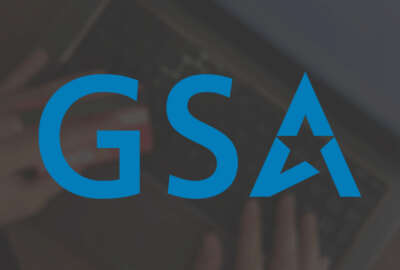
GSA hits the play button on Polaris by finalizing solicitation updates
The General Services Administration lifted its two-month pause on the small business IT services governmentwide acquisition contract after updating the mentor-p...
After nearly a two-month pause, the Polaris small business IT services governmentwide acquisition contract is back in play.
The General Services Administration re-released the solicitation on June 30 with updates to the mentor-protégé and joint venture experience submission requirements, the definition of relevant experience and the documents needed to establish the mentor-protégé or joint venture relationship.
Small businesses have until Aug. 10, to submit their bids, for this 10-year contract that could be worth tens of billions of dollars, but has no specific ceiling. Questions about the RFP are due to GSA by July 12.
“Overall, I think the RFP looks good. It is more in line with the original draft, with respect to mentor-protégé/join ventures, and seems to have clarified many of the ambiguous instructions,” said Courtney Fairchild, the president and CEO of Global Services, a proposal services firm, in an email to Federal News Network. “I think it strikes a good balance between small business prime/subcontractor teams and MPJV teams. Overall, I am not disappointed with the RFP. GSA listened to feedback before final release.”
The mentor-protégé and joint venture submission requirements have been at the heart of the concerns about Polaris over the last few months.
Relevant experience updates
GSA now is requiring mentees to provide at least one example of relevant experience and limits mentors to only three examples. Previously, there were no limits or minimums for either mentor or protégé. This experience can include task orders under the schedules or a blanket purchase agreement, a single contract or subcontract and, just added, other transaction agreements (OTAs).
“It seems like GSA is just following the NITAAC book with the protégé experience requirements — i.e., requiring one experience example from the protégé to show some experience. This is what I thought they were going to do,” said Cy Alba, an attorney with PilieroMazza in Washington, D.C. “The Small Business Administration regulations do not provide direct guidance on this question and so it does seem like agencies have some level of discretion in making the determination about how much experience the protégé would need to show. That said, they cannot discriminate against protégés as that would violate SBA regulations. Unfortunately, the law is not clear on where that boundary lies and, if protested, it will be up to GAO or the Court of Federal Claims to make that determination. This is consistent with other compromises on the issue though, like CIO-SP4.”
Additionally, the new solicitation tells vendors to detail “the work done and qualifications held individually by each partner to the joint venture as well as any work done by the joint venture itself previously. If any partner or the joint venture itself has no previous work done or no qualifications held, this should be stated” in the submission forms.
A third change would let mentor-protégé teams and joint ventures can submit relevant experience of their subcontractors as part of their bid as long as the experience happened under the joint venture umbrella.
“I’m sure some of the experience requirements, like requiring at least 6-months of performance, or how IDIQ contract value is calculated, may bring the ire of some small businesses but I am not sure those requirements are legally objectionable,” Alba said.
Fairchild added the changes GSA made may still give mentor-protégé teams and joint ventures an advantage in the self-scoring system given the probability that large businesses will have more large value projects to offer.
“I like that they brought the minimum period of performance down from one year to 6 months — seems to be more friendly to small businesses,” she said.
Concerns remain about the RFP
Other industry experts were less certain about GSA’s changes.
Larry Allen, the president of Allen Federal Business Partners, said the three and one relevant experience requirement continues to favor large businesses in what is supposed to be a small business contract.
“GSA is really trying to balance the contract so that both experienced small businesses and less experienced, newer market entries can potentially participate on Polaris. The basic idea is to get new participants into the market,” he said. “Also, while offerors using companies that don’t have relevant prior experience must disclose that, I am not sure that such information will automatically disqualify a company. My belief is that GSA will look at the overall team submitting the offer. Again, they want to enable new company participation as much as possible.”
Lisa Mundt, co-founder of the Pulse of GovCon, said GSA may have caused additional confusion, specifically for women-owned small businesses (WOSB).
“The WOSB track RFP states, ‘A minimum of one primary relevant experience project or emerging technology relevant experience project must be from a WOSB.’ However The offeror must submit a MINIMUM OF THREE (3) and may submit a MAXIMUM OF FIVE (5) distinct primary relevant experience projects and a MAXIMUM of three (3) emerging technology relevant experience projects. Does this mean if a bidder submits a maximum of 8 Relevant Experience submissions, that only one needs to be from a WOSB?” Mundt said. “We’re all for minimizing barriers to entry, but if the purpose is to provide access to best-in-class women-owned small businesses, then shouldn’t the bidder’s submission reflect that? Otherwise, the WOSB becomes a front for other companies outside the classification. The WOSB set aside is already abused in the industry with men naming their wives as ‘CEO’ – this just further exploits women business owners as props.”
GSA came under fire when it released the original RFP in March, specifically for last-minute changes it made to the requirements for mentor-protégé and joint venture bidders. After BD Squared filed a protest with the Government Accountability, GSA paused the solicitation to re-look at the requirements and obtain feedback from contractors.
In May, GSA released draft changes to Polaris, seeking industry feedback and then incorporating that into the updated final solicitation.
Sonny Hashmi, the commissioner of GSA’s Federal Acquisition Service, said in May interview that the team was trying to find the best approach to create the most opportunities for small firms.
“There’s going to be a trade-off that we need to find and that’s just reality,” he said. “Depending on the feedback that we get, and then to what extent we need to completely change strategy will determine the timeline. I’m hoping that the adjustment that we’ve made or proposed in our updated criteria is it meets the expectations of industry.”
Roger Waldron, the president of the Coalition for Government Procurement, praised GSA’s approach to improving Polaris
“GSA’s process for addressing the challenges to the Polaris evaluation was transparent, providing interested small businesses and others the opportunity to provide feedback on the proposed changes. This approach was critical in demonstrating GSA’s commitment to developing a reasonable evaluation approach that balances the relative merits of small businesses, joint ventures and contractor teaming arrangements,” he said in an email to Federal News Network. “GSA clearly has moved the ball here, and now, potential offerors will have time to digest the changes and respond by Aug. 10.”
Copyright © 2024 Federal News Network. All rights reserved. This website is not intended for users located within the European Economic Area.
Jason Miller is executive editor of Federal News Network and directs news coverage on the people, policy and programs of the federal government.
Follow @jmillerWFED
Related Stories

Polaris, Services MAC will be the first governmentwide contracts without maximum dollar values




